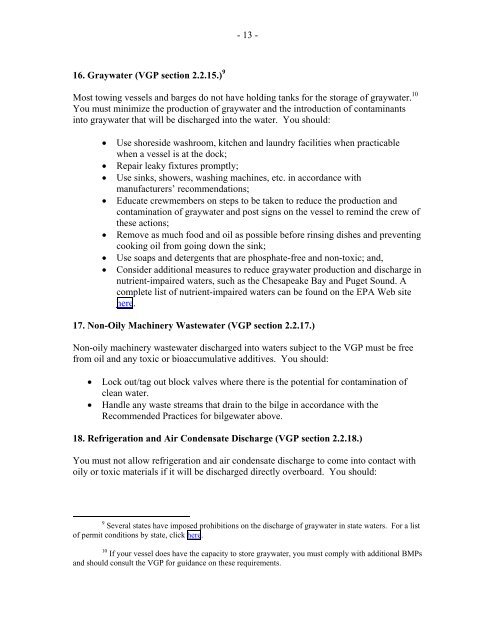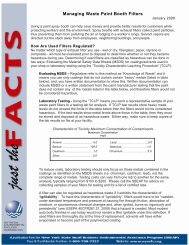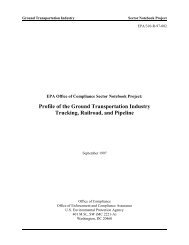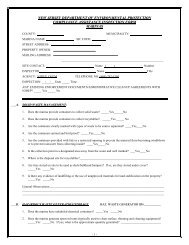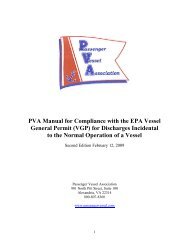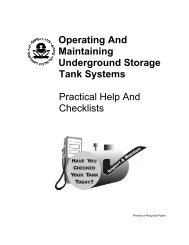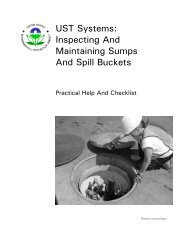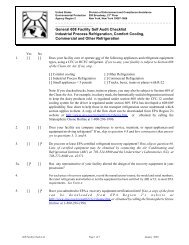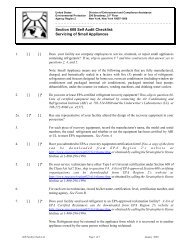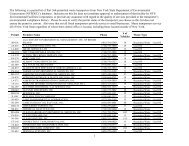AWO Recommended Practice Guide - The American Waterways ...
AWO Recommended Practice Guide - The American Waterways ...
AWO Recommended Practice Guide - The American Waterways ...
Create successful ePaper yourself
Turn your PDF publications into a flip-book with our unique Google optimized e-Paper software.
- 13 -16. Graywater (VGP section 2.2.15.) 9Most towing vessels and barges do not have holding tanks for the storage of graywater. 10You must minimize the production of graywater and the introduction of contaminantsinto graywater that will be discharged into the water. You should:Use shoreside washroom, kitchen and laundry facilities when practicablewhen a vessel is at the dock;Repair leaky fixtures promptly;Use sinks, showers, washing machines, etc. in accordance withmanufacturers’ recommendations;Educate crewmembers on steps to be taken to reduce the production andcontamination of graywater and post signs on the vessel to remind the crew ofthese actions;Remove as much food and oil as possible before rinsing dishes and preventingcooking oil from going down the sink;Use soaps and detergents that are phosphate-free and non-toxic; and,Consider additional measures to reduce graywater production and discharge innutrient-impaired waters, such as the Chesapeake Bay and Puget Sound. Acomplete list of nutrient-impaired waters can be found on the EPA Web sitehere.17. Non-Oily Machinery Wastewater (VGP section 2.2.17.)Non-oily machinery wastewater discharged into waters subject to the VGP must be freefrom oil and any toxic or bioaccumulative additives. You should:Lock out/tag out block valves where there is the potential for contamination ofclean water.Handle any waste streams that drain to the bilge in accordance with the<strong>Recommended</strong> <strong>Practice</strong>s for bilgewater above.18. Refrigeration and Air Condensate Discharge (VGP section 2.2.18.)You must not allow refrigeration and air condensate discharge to come into contact withoily or toxic materials if it will be discharged directly overboard. You should:9 Several states have imposed prohibitions on the discharge of graywater in state waters. For a listof permit conditions by state, click here.10 If your vessel does have the capacity to store graywater, you must comply with additional BMPsand should consult the VGP for guidance on these requirements.


